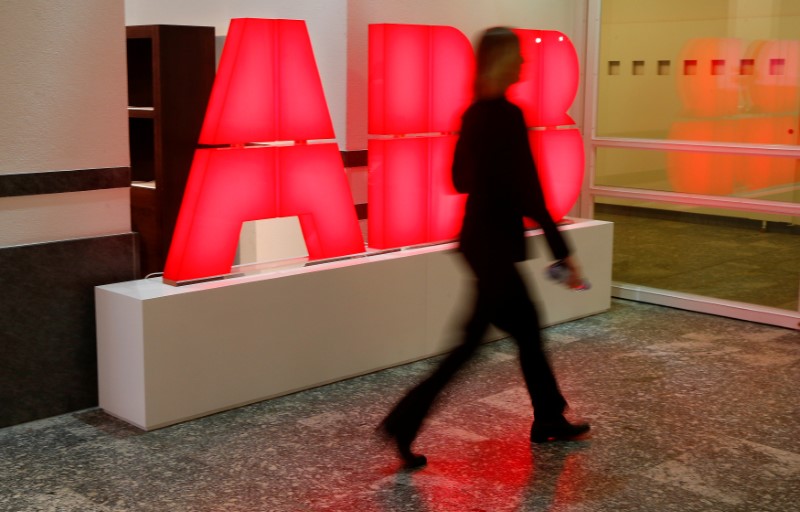By John Revill
ZURICH (Reuters) - ABB (S:ABBN) will pay its former Chief Executive Ulrich Spiesshofer 13 million Swiss francs ($13.32 million) nearly a year after he left the engineering group following a tenure marked by poor stock returns and missed targets.
Speisshofer, who departed in April after nearly six years at the helm, will get 8.58 million francs for his notice period which runs to the end of April this year, ABB said on Wednesday.
He will also get 4.47 million francs for a non-compete clause which runs to May 2021, the company said in its annual report.
Speisshofer did not immediately respond to a Reuters' request for comment.
The payout underscores how executives at Swiss companies still earn large sums despite the country's citizens voting seven years ago to impose some of the world's strictest controls on executive pay.
Earlier this month, it emerged former Credit Suisse (S:CSGN) boss Tidjane Thiam could collect as much as 30 million francs after resigning earlier this month over a spying scandal.
ABB's share price fell 9.4% during Spiesshofer's term as CEO, underperforming the blue-chip Swiss market index which rose 17% as well as trailing rivals like Siemens (DE:SIEGn), Alstom (PA:ALSO) and Honeywell (N:HON).
The engineering company also missed its revenue growth target in 2015, 2016 and 2017.
"The terms of departure of the former CEO, Ulrich Spiesshofer, were as per his contractual arrangements," ABB said in the annual report.
ABB Chairman Peter Voser picked up 3.44 million francs in compensation during 2019 for his eight month stint as interim chief executive, the annual report said. He also received 1.2 million francs for his role as chairman.
Voser, a former boss of Royal Dutch Shell (L:RDSa), will be replaced by ex-Sandvik CEO Bjorn Rosengren, who takes over as new CEO on March 1.
ABB said it has considered "very carefully" the compensation packages for both Voser and Rosengren.
"The committee has set the target total direct compensation for the newly appointed CEO nearly 22% lower than for the former CEO," it said in the report.
"This is derived by a reduction in target short-term and
target long-term incentive opportunity, to more closely represent competitive market practice."
Last week, Voser said ABB's board had long been dissatisfied with the operational performance of the company.
"ABB has never followed the same strategy for a long period, we were virtually always restructuring. That's why we weren't performing," Voser told Germany's Manager Magazin.
"That annoyed me a hell of a lot."
(This story has been refiled with adjusted company code)
